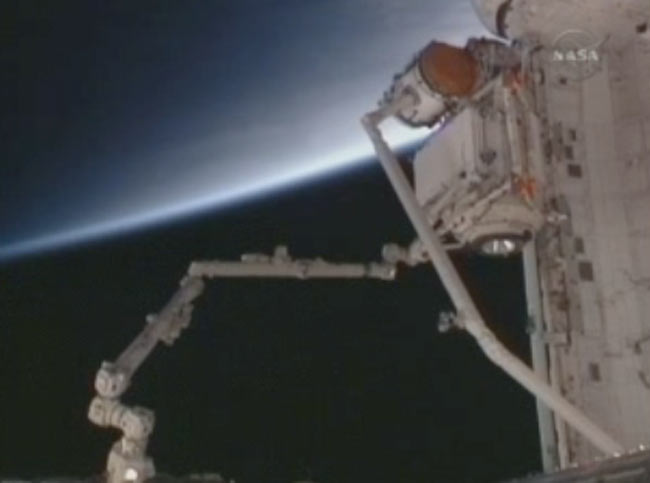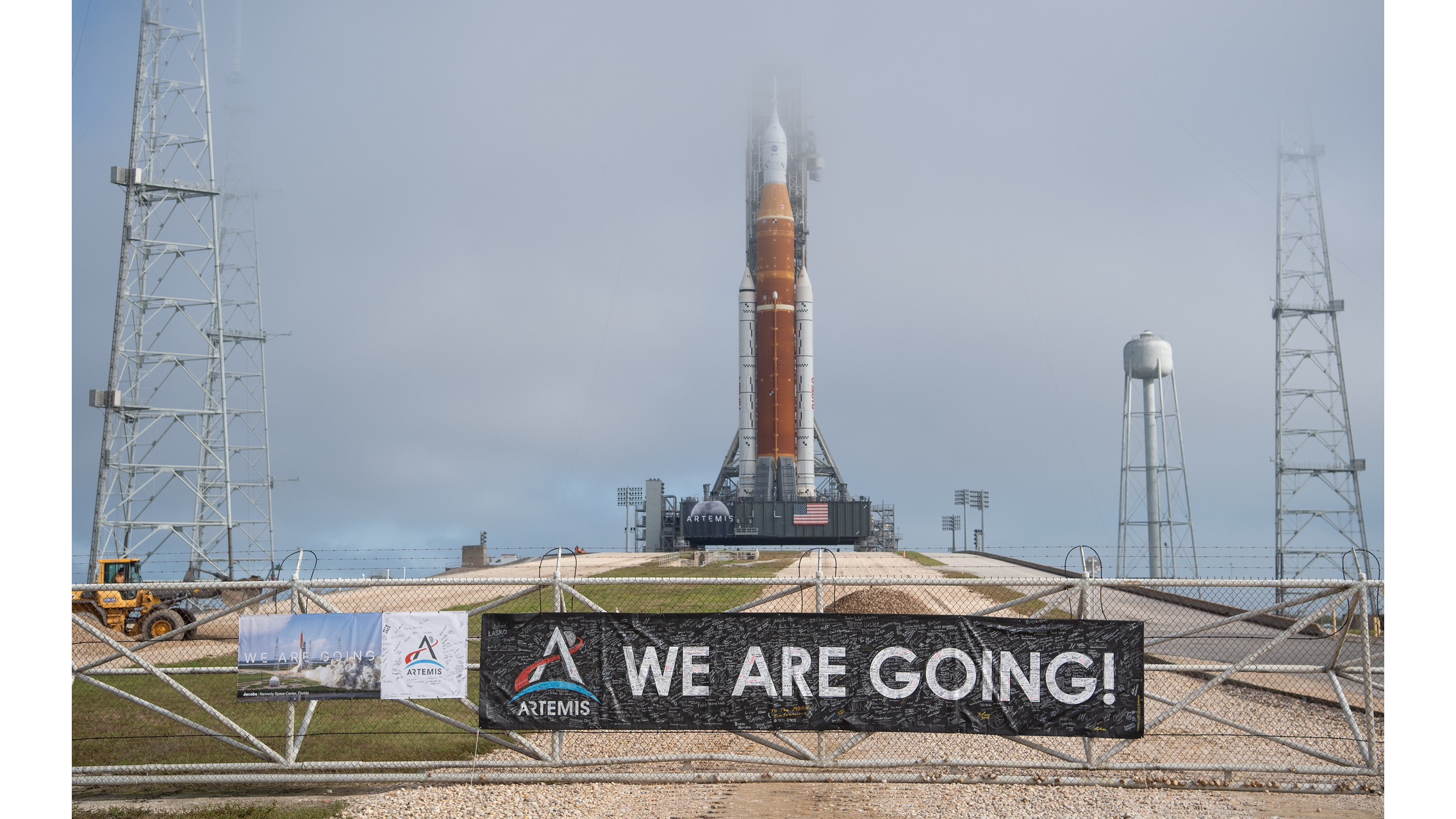Astronauts Attach New Russian Science Module to Space Station

This story was updated at 8:27 a.m. EDT.
Astronauts aboard the space shuttle Atlantis successfullyinstalled a new Russian research room on the International Space StationTuesday.
The $200 million new room ? called the Mini Research Module-1(MRM-1), or "Rassvet," meaning "Dawn" in Russian ? is themain item being delivered by Atlantis during its STS-132 mission to the station.The shuttle launched Friday on its last planned flight before it retires.
Mission specialist Garrett Reisman steered the spacestation's robotic arm to carry the new room to its permanent home on thestation's Zarya module. Rassvet docked at 8:20 a.m. EDT (1220 GMT).
"Garrett did a good job flying," capcom SteveSwanson at Mission Control in Houston said. "It went right down themiddle, got a hole in one."
Atlantis docked at the space station Sunday, bearing sixastronauts, the new module, and a load of spare supplies to outfit thestation after NASA's three-space shuttle fleet is retired later this year.
The 11,188-pound (5,075-kilogram) Rassvet is 19.7 feet (6meters) long, smaller than some of the larger rooms on the station. [Graphic: Russia's Rassvet space module.]
Breaking space news, the latest updates on rocket launches, skywatching events and more!
"It's not big, but it?s a pretty interesting module, whichwill add new capabilities," said Alexey Krasnov, chief of the pilotedprograms directorate at the Russian Federal Space Agency Roscosmos.
The six shuttle Atlantis astronauts woke this morning at2:50 a.m. EDT (0650 GMT) to begin their busy fifth day in space. They were awakened by the song "Macho Man" by thevillage people, played especially for mission specialist Garrett Reisman.
"Good morning Atlantis, and aspecial good morning to you today, Garrett," said Shannon Lucid, capcom atMission Control in Houston.
"Thanks Shannon, good morning,"Reisman replied. "Good morning also to Simone, who's behind the selection ofthat tune," he said to his wife back on Earth, laughing. "We'refeeling like macho men!"
New room
The job of installing Rassvet involved some complicatedrobotics work to get the lab transferred over.
First, STS-132 commander Ken Ham and pilot Tony Antonelli usedthe space shuttle's robotic arm to lift the module out of Atlantis'cargo bay. Then, they handed off the room to Reisman, who grabbed it with thespace station robotic arm. He then steered it over to the other side of thestation where Rassvet linked up.
"This is like a little ballet," mission specialistPiers Sellers said in a preflight interview. "Hopefully if it will workout nicely and we?ll get a seal and I think sometime, the next day, they?llopen up the hatches and see if anybody?s stowed away inside."
In fact, Rassvet is loaded full of U.S. cargo, including newlaptops, food and supplies for the station crew. The United States was allowedto pack items inside the module in exchange for delivering it to the station ona space shuttle.
"It's full of U.S. supplies right now so they?ll get inthere and clean all that out, and then it?ll be another laboratory, if youwill," Atlantis pilot Tony Antonelli said.
Mission on track
Later today, mission specialists Stephen Bowen and MichaelGood will prepare for their spacewalk on Wednesday, the second of three plannedexcursions during the 12-day STS-132mission.
The Atlantis astronauts spent Monday completing the first spacewalk.Despite afew glitches during the spacewalk, including a computer failure and sometrouble installing a backup antenna at the station, mission managers said Atlantis'flight is going well.
"We couldn't be more pleased with how the mission isgoing so far," LeRoy Cain, STS-132 mission management team co-chair, saidduring a Monday briefing.
There was an option for the astronauts to carry out a focusedinspection of Atlantis' heat shield Tuesday, if further data was needed on thestate of the insulating tiles that protect the orbiter from the heat ofre-entry to Earth. But so far NASA has decided a focused inspection is notneeded yet, though the astronauts may perform further scans later.
"We still have some data coming in, so we still havesome time to see whether we need any more data," Cain said.
- Gallery - Spectacular Photos: The Last Launch of Atlantis
- POLL: Should NASA Retire the Space Shuttles?
- 7 Cool Things You Didn't Know About Space Shuttle Atlantis
SPACE.com is providing complete coverage of Atlantis'STS-132 mission to the International Space Station with Senior Writer ClaraMoskowitz and Managing Editor Tariq Malik based in New York. Click here for shuttlemission updates and a link to NASA TV.

Clara Moskowitz is a science and space writer who joined the Space.com team in 2008 and served as Assistant Managing Editor from 2011 to 2013. Clara has a bachelor's degree in astronomy and physics from Wesleyan University, and a graduate certificate in science writing from the University of California, Santa Cruz. She covers everything from astronomy to human spaceflight and once aced a NASTAR suborbital spaceflight training program for space missions. Clara is currently Associate Editor of Scientific American. To see her latest project is, follow Clara on Twitter.
